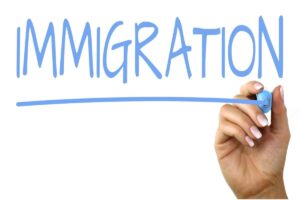Immigration News & Resources
Latest News
Trump administration revokes extension of protections for Venezuelans in US, NY Times reports
Jan 28th, 2025 -The Trump administration has revoked an extension of deportation protections that the previous administration granted to more than 600,000 Venezuelans already in the United States, the New York Times reported on Tuesday, citing a copy of the decision.
Homeland Security Secretary Kristi Noem rescinded a Biden administration move to grant Venezuelans in the U.S. an additional 18 months of deportation relief and access to work permits through the Temporary Protected Status (TPS) program, according to the New York Times.
President Donald Trump, a Republican, took office on Jan. 20 vowing to crack down on illegal immigration and humanitarian programs he says go beyond the intent of U.S. law. Trump tried to end most TPS enrollment during his first term but was stymied by federal courts.
TPS is available to people whose home country has experienced a natural disaster, armed conflict or other extraordinary event. Former President Joe Biden, a Democrat, greatly expanded the program and it now covers more than 1 million people from 17 nations.
Biden’s Homeland Security Secretary Alejandro Mayorkas issued the Venezuela extension a week and a half before Trump took office, even though existing protections for Venezuelans did not expire until April for some enrollees and September for others. He also extended TPS for people from El Salvador, Ukraine and Sudan.
The New York Times reported that Noem’s rollback of the extension requires her to decide what to do with protections expiring in April by Saturday or have them automatically renew for six months.
Si aún no ha buscado un beneficio de inmigración alternativo y se encuentra en los EE. UU. con permiso humanitario, llámenos para programar una consulta y analizar sus opciones de inmigración.
Family-Based Immigration
The U.S. immigration system prioritizes family reunification. U.S. citizens and lawful permanent residents (LPRs) can petition for certain family members to gain LPR status. Immediate relatives of U.S. citizens (spouses, parents, and children under 21) have no annual visa limits.
Employment-Based Immigration
Immigrants with valuable skills can apply for employment-based visas. These visas are categorized based on the type of employment and the applicant’s qualifications.
Humanitarian Protections
Programs like Temporary Protected Status (TPS), asylum and refugee status offer legal residence to individuals facing persecution or unsafe conditions in their home countries. For additional information, please schedule a consultation with us.
Path to Citizenship
After obtaining LPR status, immigrants can apply for U.S. citizenship after five years (or three years in some cases). For additional information, please schedule a consultation with us.
If you have any specific questions or need further assistance, feel free to contact us via email at maria@mserralaw.com or by phone at 305-859-0872.
